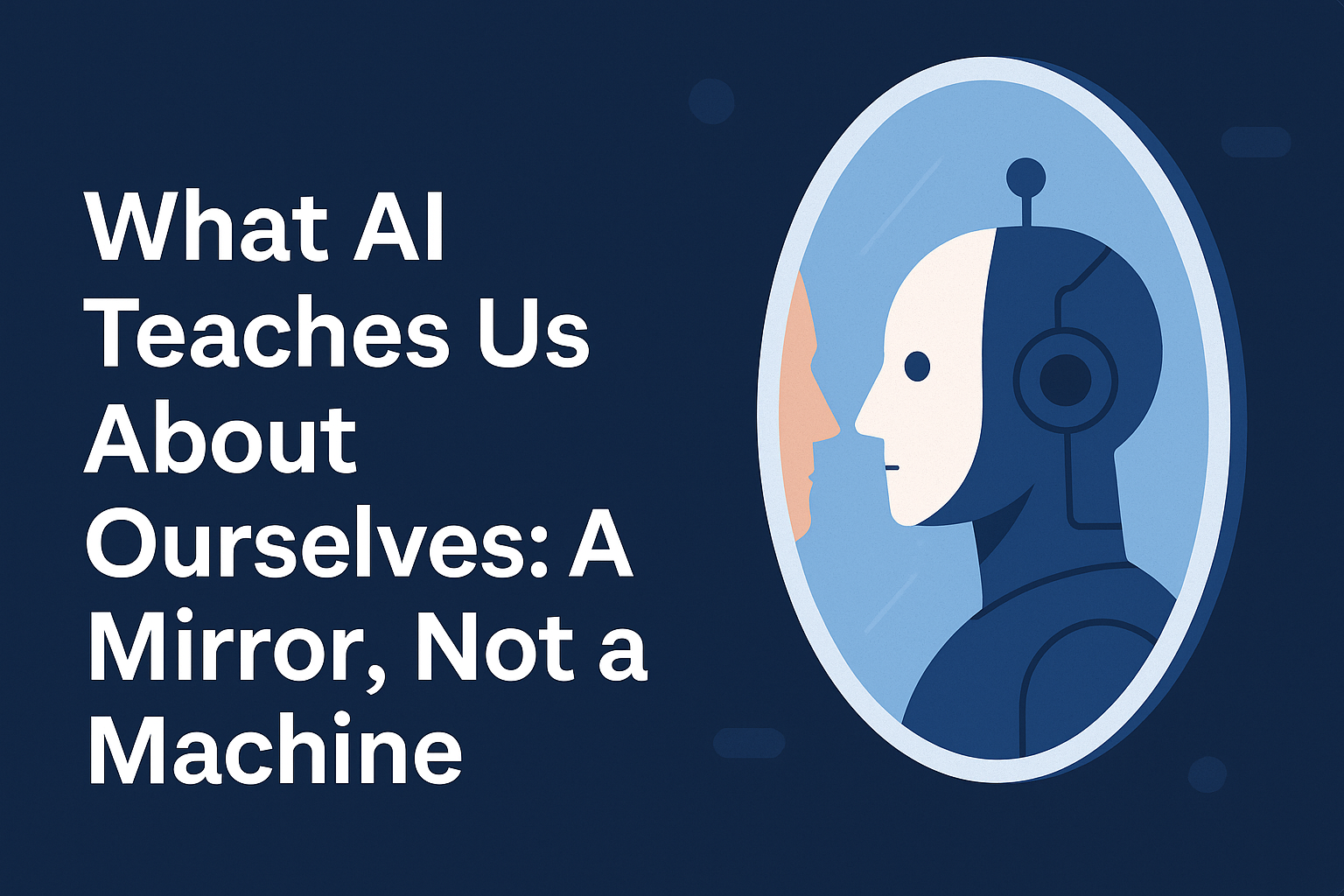Human looking a reflection of a robot
While much of the conversation around artificial intelligence focuses on its power, productivity, or danger, we rarely stop to ask: what does it reveal about us? AI systems don’t appear out of nowhere. When we build AI, they are shaped by human data, trained on human values (and flaws), and deployed by human decision-makers. In trying to build intelligence and a new species, we’ve accidentally built a reflection.
AI Reflects Our Language
Large Language Models (LLMs) like GPT-4 or Claude are built on billions of words scraped from the internet. Every tweet, blog post, research paper, Reddit comment, and news article is fair game. All of the words that we ever wrote and spoke are now the brains of LLMs. And what emerges isn’t an idealized truth — it’s an averaged mirror of how we speak, think, and stereotype.
Biases show up in autocomplete suggestions. Job descriptions optimized with AI might push gender-coded language. Even toxicity filters have to unlearn racism and hate speech baked into internet discourse. These flaws aren’t the machine going rogue — they’re us, on repeat. What the AI sees is our true human nature.
So when we ask AI to write for us, summarize a news article, or predict sentiment, we’re watching our collective voice echo back. If it sounds biased, that’s because we are.
Tools That Echo Our Values
When a company uses AI to optimize scheduling, grading, or some other task, it’s choosing efficiency over nuance. When we use AI to sort resumes, we risk automating exclusion. These tools aren’t neutral: they’re moral amplifiers.
From a recent article by Jagjit Singh titled “On Using AI Responsibly”, we see that the most important question isn’t what can AI do? but what are we asking it to do? If we only optimize for profit, speed, or volume, AI will reflect that. It has no form of a compass of its own. It orients itself by ours. That is why ethics is a big part of AI now. How can AI be right and just to our complex world today?
Our use of AI reveals what we value. And sometimes, that revelation is uncomfortable.
Creativity in Crisis
AI-generated art has sparked existential debates: is it really creative? Is it theft? Is it beautiful if no one suffered to make it? It’s also brought up the debate of the importance of the human element.
These debates reveal that we value more than the outcome. Human art has intent, emotion, backstory, physical labor. A perfect picture made in 5 seconds by a prompt doesn’t move us the same way. The question is: why?
We now see creativity itself in crisis. What we call “art” may not be the image, but rather the journey. And AI can fake the destination, but not the path. This is unless we change what we value.
AI at Work
TEAMCAL AI and similar tools show how AI is becoming a collaborative presence in the workplace. But how we use these tools tells us more about us than about AI.
If your AI assistant is set up to double-book people without pause, that’s a choice. If it micromanages, that reflects team culture. Are we using AI to empower teammates, or to control them more efficiently?
New technologies like Agentic AI, which itself behaves like a co-worker, is still only as fair, flexible, and thoughtful as the systems it learns from. Its behavior is trained by our habits. Our collaboration habits are directly reflected, and in an indirect way through using these AIs it perpetuates harmful values.
Conclusion: We’ve Always Been the Dataset
Artificial intelligence was never meant to be magic. It’s reflection at scale. It reveals not just our knowledge, but our shortcuts. Not just our genius, but our laziness. Not just our language, but our values. Not just our righteousness, but our wickedness.
As we race toward smarter machines, we must pause and ask: What are we teaching them? And more importantly, what does their behavior teach us about who we really are?
We didn’t just build a tool. We built a mirror. And it’s time we looked into it.

